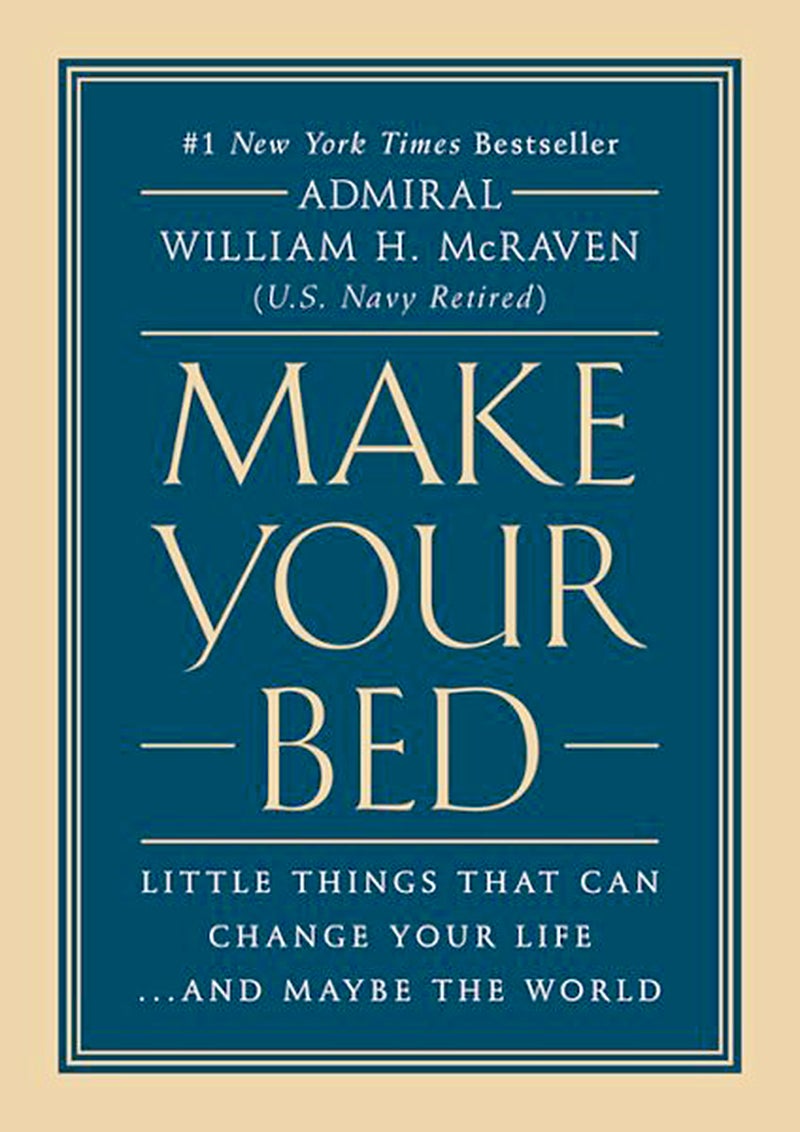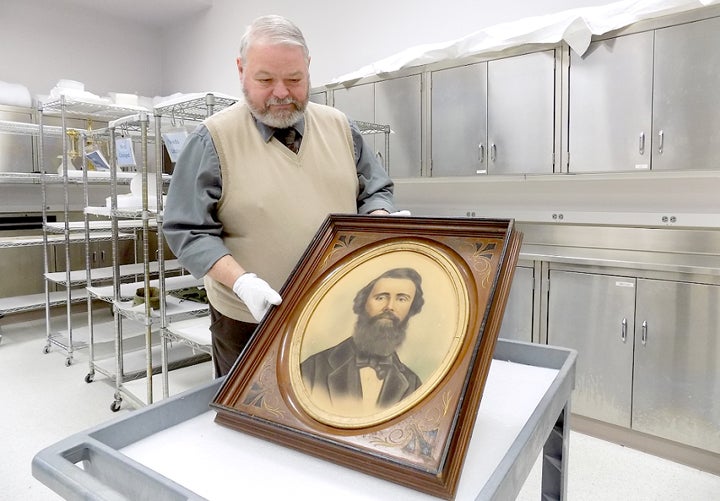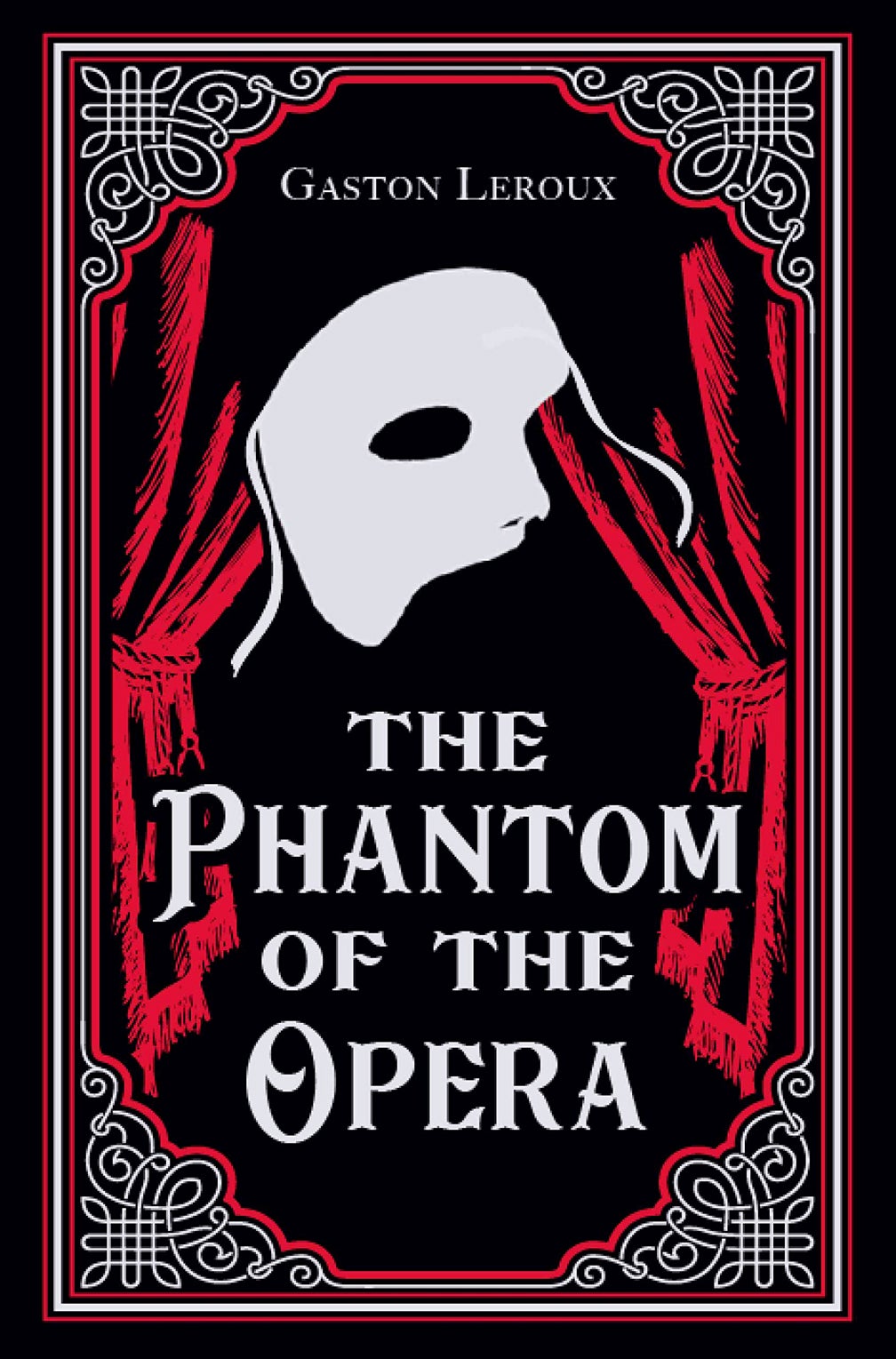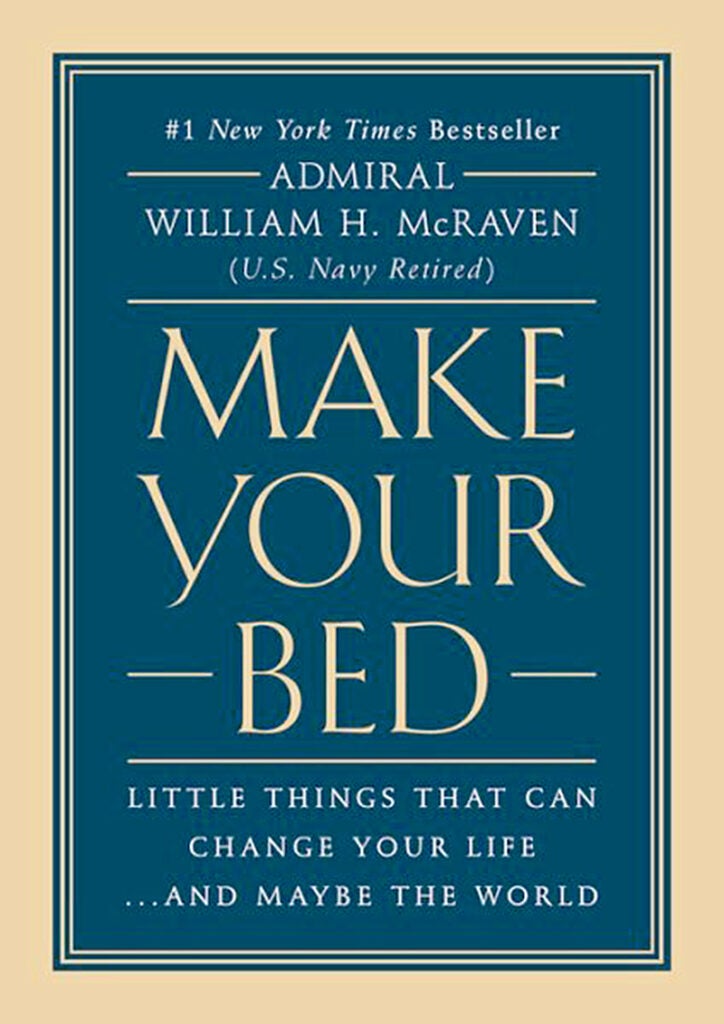
“Make Your Bed: Little Things That Can Change Your Life … and Maybe the World” by Admiral William H. McRaven, U.S. Navy Retired
In 2014, Admiral McRaven was asked to give the commencement speech at the University of Texas at Austin. McRaven took his inspiration from the University’s motto, “What starts here, changes the world.” His speech incorporated the 10 principles he learned as a Tadpole in training to be a Navy Seal. In this book, McRaven shares anecdotes that deal with each of the principles, stories about difficult decisions, standing up for your beliefs and giving inspiration to others.
The Admiral’s first principle “Start your day with a task completed” evolved to “making your bed.” In the Navy, there is a daily inspection that includes enough starch in the uniform, shiny buckles, lined up creases in the uniform. And then there is the bed which is made up to specs the Navy established with the final test being the coin flipped onto the bed that should bounce. If these simple tasks aren’t done correctly, the midshipmen will be required to do extra tasks throughout the day. The thinking is that if you can’t do the little things right, how can you move on to the big things.
Another Navy Seal principle is to “find someone to help you paddle.” We often struggle with trying to complete a task on our own, and many are reluctant to ask for help. The Navy fosters this kind of thinking by forcing a group of seven Tadpoles to carry a 10-foot rubber raft with them throughout the day. If one of the men was under the weather, the others would increase their effort and pick up the slack. They all worked together to get the raft to its final destination. The lesson was that it would take more effort than one man could give and that you would need people in your life to get through difficult times.
To illustrate this second principle, McRaven tells the story of a disaster he suffered. After 25 years of leading Seals in training, one parachute jump went very wrong for McRaven. The weather was great, the jump-started off as normal. But about the time he was about to pull the cord to release his shoot, he saw another jumper slide beneath him. Then the parachute opened beneath him and McRaven was thrown into a tumble. Before he could get himself straightened out, his leg became wrapped up in the parachute cord. Then his other leg was tangled in the second chute cord. McRaven knew he had to open his chutes to avoid the fall, but also knew that his body might not survive when the chutes deployed.
With each leg being pulled in a different direction, his pelvis was ripped apart. His team rescued him quickly even though he was miles from the drop target. After hours of surgery, McRaven awoke convinced that his Navy Seal career was finished. Recovering at home, his wife, Georgeann, took over nursing duties but also encouraged him with every small step along the way. Friends came to visit and their shared stories of his past reminded him of his achievements. The day he could get out of bed by himself and “make his bed” was when he knew he would survive this crisis.
This book would be a great gift for a young person interested in the military or a student going off to college, inspiring them to be everything that they can be. After all, it’s the simple things that can add up to change your life and then the world.
— Review by Lizz Taylor, Poor Richard’s Books
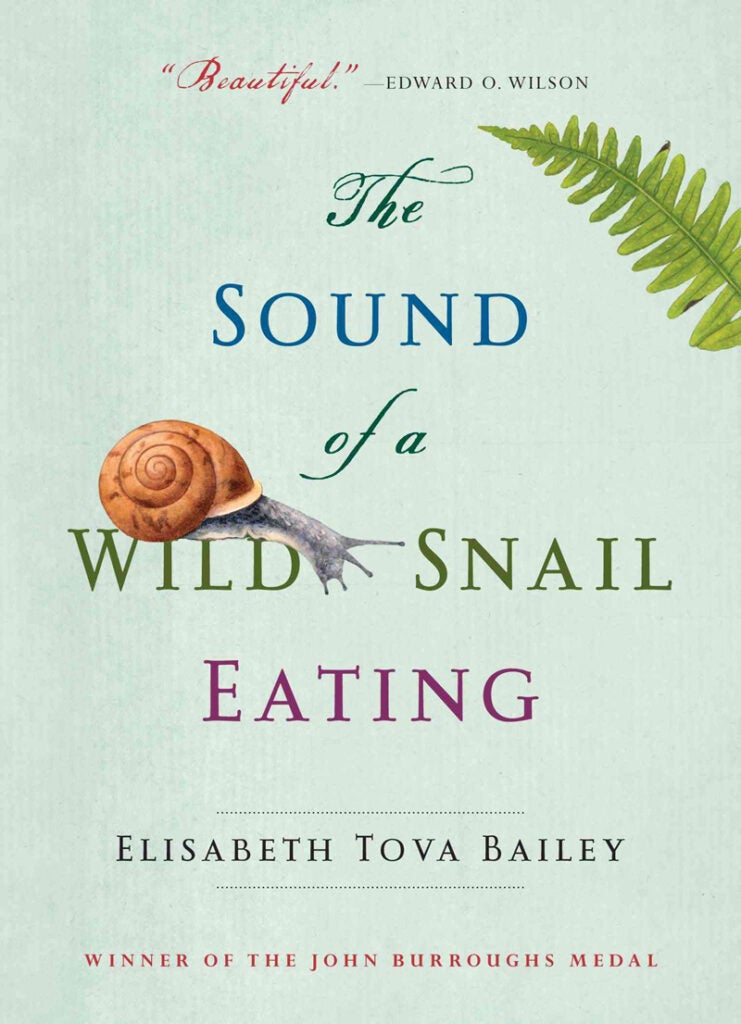
“The Sound of a Wild Snail Eating” by Elisabeth Tova Bailey
Bailey is sick with a mysterious illness. Doctors have not been able to diagnose the malady but it has forced Bailey to require a caretaker in a facility. She cannot begin to think of getting out of bed as she does not have the strength or will to move. Friends and family have been offering visits and treats, but those are becoming more infrequent.
Her caretaker provides her with a wild violet plant from the nearby woods and includes a wild snail because it appears to add interest to the plant. Baily is curious about the snail and its habits. She is even awakened in the middle of the night when she hears the snail munching on leaves. This begins Bailey’s focus on the snail’s daily life. She is forced to give up her previous life and continue her existence at a “snail’s pace” with her new companion.
Bailey observes the creature, researches its anatomy, and begins to compare her existence with that of the snail. She realizes the plant is a limited environment and generously provides a terrarium for her friend. Now she can tell when it sleeps, as well as when it eats or explores its new kingdom.
Bailey slowly begins to understand the purpose of the snail, its defenses, movements and reproduction. She also begins to slowly recover some of her own abilities.
This story of the snail forced me to slow down and appreciate a part of nature that I’d previously dismissed. Every creature has a purpose and a reason to exist. That small snail kept Bailey sane throughout a long ordeal when she was forced to live in her own “terrarium.” Yet the snail was constantly able to adapt to its existence in Bailey’s world and continued to do what snails do.
Bailey’s story of survival, resilience and curiosity of the snail would be a good gift for anyone who values nature, but especially for a shut-in or someone in recovery from a medical event. This story communicates how a very small part of the natural world can illuminate and enhance our own human existence.
— Review by Lizz Taylor, Poor Richard’s Books
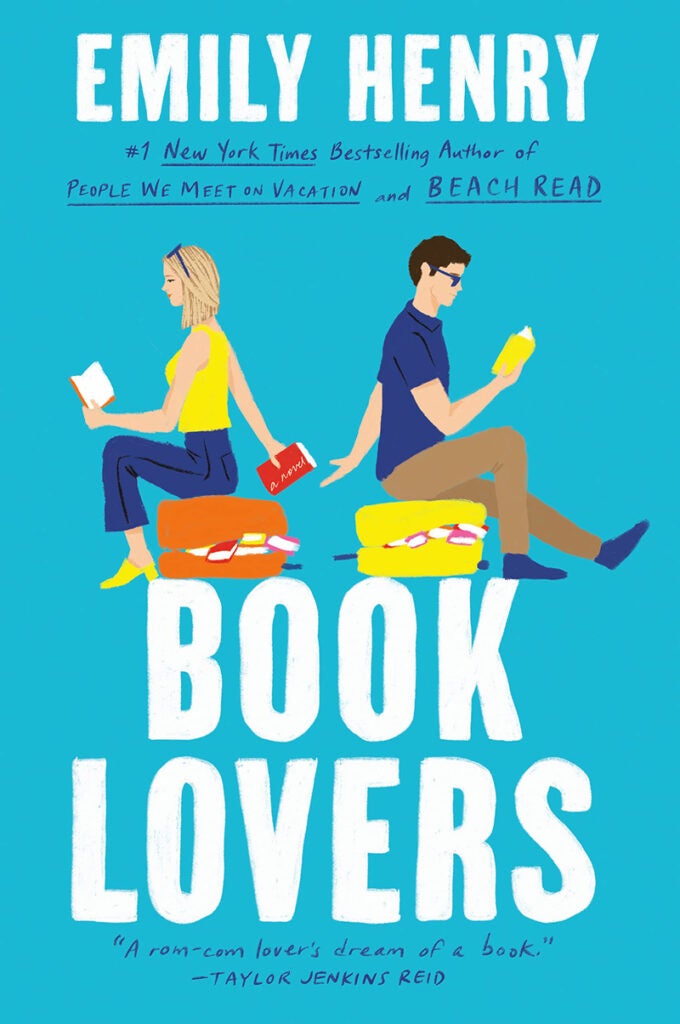
“Book Lovers” by Emily Henry
Did you know August is Romance Awareness Month? What a great time to catch up on some new titles including Emily Henry’s new novel.
Nora, a hardworking literary agent, is ruthless when it comes to getting the best deals for her clients. In fact, she works so closely with them that she has no time or inkling to be involved in a relationship. When Libby, Nora’s little sister, talks her into taking a sister’s getaway trip to North Carolina for a month, she reluctantly goes along for no other reason than to support her sister who is having relationship problems of her own. Libby wants Nora to experience small-town romance, but all Nora wants to do is work. Everything goes awry when Nora discovers that Charlie Lastra is also vacationing in the same small town. Charlie is the arrogant book editor who refused to listen to anything Nora had to say about an up-and-coming new author.
This book will sweep you along with its enemies to lovers’ storyline. The banter between the characters is fun, witty and, occasionally, snarky. It’s also a story about family and what we go through for each other.
— Review by Paul Sawyier Public Library staff

“The Instant Pot College Cookbook” by Julee Morrison
What a great book for the college student living in a dorm or a small apartment. Perfect for those who want to stay away from junk food or limit cafeteria meals.
The cookbook includes recipes for meatless meals, soups, beef, poultry, stews and desserts. There is even a full chapter on making breakfast. Each recipe is easy to follow, with detailed directions and most ingredients needed will be easy to find at the grocery. The descriptions of the parts of the pot and how to use it are extremely helpful. At the end of the book, there is a section on Instant Pot pressure cooking times and a measurement conversion chart.
Both this book and an Instant Pot are highly recommended for college students. Its well laid out format is simple and easy to follow. Don’t settle for pizza every night, let the Instant Pot do the work so you can eat like royalty.
— Review by Paul Sawyier Public Library staff

